Information for Native and Indigenous Communities
Listening sessions
As part of its Tribal Consultation process, NEH is engaging in a series of listening sessions with Tribal Colleges and Universities and Tribal cultural centers.
Nation-to-Nation consultation
The National Endowment for the Humanities (NEH), in accordance with President Biden’s Memorandum on Tribal Consultation and Strengthening Nation-to-Nation Relationships, is engaging with Tribal leaders to discuss their needs and concerns related to NEH’s resources and grant programs.
On April 23, 2021, NEH submitted a Plan of Action to the Office of Management and Budget (OMB), and on July 1, 2021, the agency held its first Tribal consultation. A recording of the July 1 Tribal consultation meeting is available and may be requested at @email
Federally recognized tribes, as well as any 501(c)3 organization—including Tribal cultural centers, libraries, museums, and archives—may apply to any of NEH’s grant programs. Across all its programs, NEH encourages projects that include Native American organizations and communities as lead applicants and as project partners.
NEH administers two grant programs that specifically serve Tribal Nations and Native communities.
- The Awards for Faculty at Tribal Colleges and Universities program seeks to strengthen the humanities at Tribal Colleges and Universities by encouraging and expanding humanities research opportunities for individual faculty and staff members. Awards support individuals pursuing humanities research that is of value to scholars, students, and general audiences. The program especially encourages projects related to Indigenous knowledge that sustain and strengthen Tribal languages.
- The Humanities Initiatives at Tribal Colleges and Universities program strengthens the teaching and study of the humanities at Tribal Colleges and Universities by developing new humanities programs, resources (including those in digital format), and courses, and by enhancing existing ones. Projects address a core topic or set of themes drawn from such areas of study in the humanities as history, philosophy, religion, literature, and composition and writing skills.
Many other NEH programs, while not exclusively targeted to Tribal Nations and Native communities, specifically encourage individuals and organizations that serve Native communities to participate and routinely fund projects with connections to Tribal Nations.
- For instance, the two Documenting Endangered Languages programs, Senior Research Grants and Fellowships—which NEH administers in cooperation with the National Science Foundation—have made numerous awards to projects that document and preserve Native languages.
- The Preservation Assistance Grants for Smaller Institutions program helps small and medium-sized institutions to preserve and care for their humanities collections. Awards support preservation assessments, purchase of preservation supplies, and education and training for museum, library, and archives staff. The program encourages applications from Tribal colleges and universities, Native American tribes, and Tribal cultural centers, and Alaska Native and Native Hawaiian organizations.
- From 2017 through 2021, NEH has supported the Native Language Immersion Initiative program through a cooperative agreement with the First Nations Development Institute, based in Longmont, Colorado. The program has awarded over 45 grants to Native-led nonprofit organizations in support of Native language immersion programs across the country.
In April 2021, NEH hosted a virtual grant workshop for tribal colleges and universities or Native American institutions. This workshop provides an overview of NEH, highlighting grant programs that may be of interest to applicants from TCUs and Native American institutions.
State Humanities Councils - NEH provides direct funding to humanities councils in the fifty-six states and jurisdictions. The councils enrich the cultural life of the people they serve by supporting the unique resources and interests of their local communities through grants, council-led programs, and partnerships. Councils engage tribal and indigenous partners in programming, provide grants to preserve and share indigenous histories, stories, and language, and strengthen humanities knowledge and offerings at Tribal Colleges and Universities. Find your local humanities council here.
NEH is a partner with the Department of the Interior (DOI) on the Federal Indian Boarding School Initiative, a federal initiative to recognize the troubled legacy of federal Indian boarding school policies with the goal of addressing their intergenerational impact and shedding light on the traumas of the past. Since the launch of the initiative in 2022, NEH has committed nearly $5 million to support the digitization of records from the United States’ system of 408 federal Indian boarding schools and the creation of a permanent oral history collection, documenting the experiences of the generations of Indigenous students who passed through the federal boarding school system.
Read the press release to learn more about the NEH-DOI partnership.
Through this partnership, NEH also supports humanities programming—including scholarly research, convenings, and educational programs—that further public understanding of the history and impact of the federal Indian boarding school system. This funding builds upon previous NEH-supported work such as the Heard Museum’s Away From Home permanent exhibition of American Indian boarding school stories, and the Genoa Indian School Digital Reconciliation Project, which is digitizing and transcribing government records, photographs, oral histories, and other historical materials documenting the experience of Native American children who attended the Genoa U.S. Indian School in Nebraska between 1884 and 1934.
NEH funding opportunities through this program are included under NEH’s American Tapestry: Weaving Together Past, Present, and Future initiative.
Find additional NEH resources for Native Communities at this page.
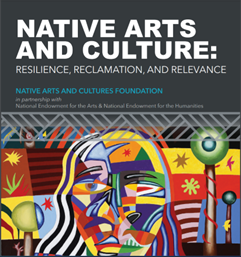
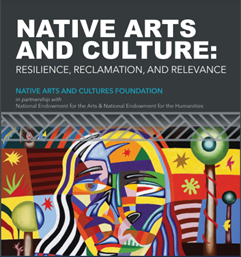
The Native Arts & Culture: Resilience, Reclamation, and Relevance convening in February 2020 brought together representatives from more than 40 tribal nations and the heads of several federal agencies. Participants discussed how to revitalize Native communities through language, arts, and historic preservation. The Native Arts & Cultures Foundation produced a report on the convening in March 2021. The full report includes a summary of the proceedings and recommendations to strengthen the Native arts, cultures, and humanities fields; the executive summary highlights the findings.


NEH collaborated with the National Endowment for the Arts and other federal agencies to produce the Federal Resources for Native Arts & Cultural Activities, a free online resource guide for supporting Native arts and cultural activities. The Federal Resources for Native Arts & Cultural Activities publication is regularly updated and free for download.
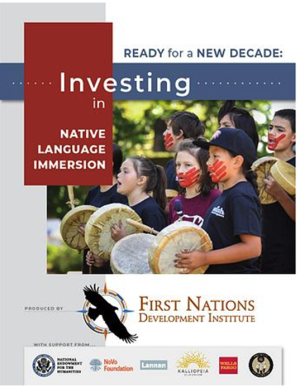

First Nations Development Institute report
First Nations Development Institute received a $2.1 million matching Challenge Grant in 2017 to support Native language immersion projects developed by Tribal organizations, including curriculum development, technology access, and teacher development. The 2022 report shares the impact of the project and presents findings and lessons learned from four years of targeted investments in Native language immersion programs.
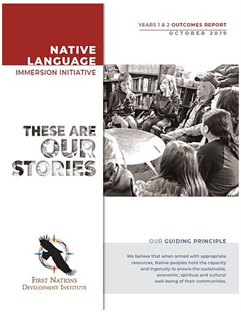
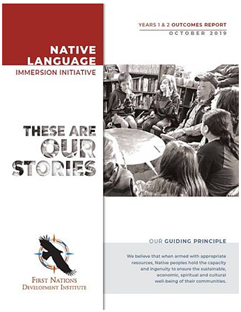
The impact report focuses on outcomes from the first two years of the initiative.
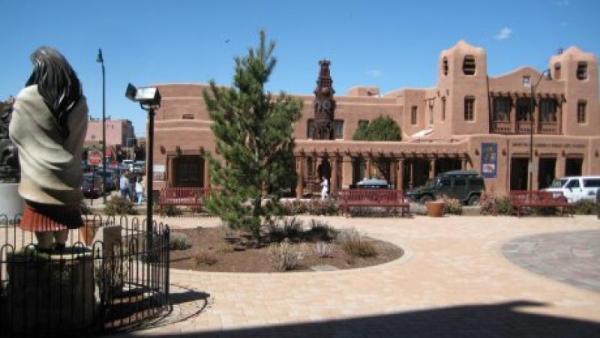
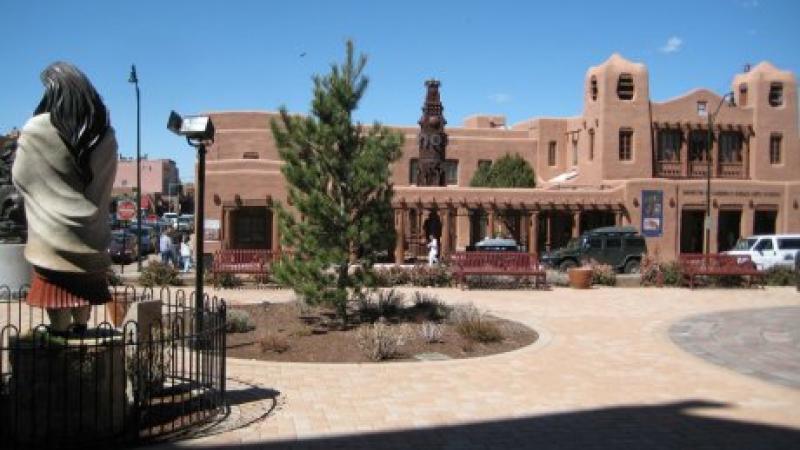
Preservation Assistance Grants for Smaller Institutions at The Institute of American Indian Arts
NEH awarded The Institute of American Indian Arts (IAIA) Preservation Assistance Grants (PAGs) to purchase supplies, develop an integrated pest management program, assess archival holdings, and rehouse more than 14,000 photographic slides, stereoscopes, color transparencies, and negatives into protective sleeves and envelopes.

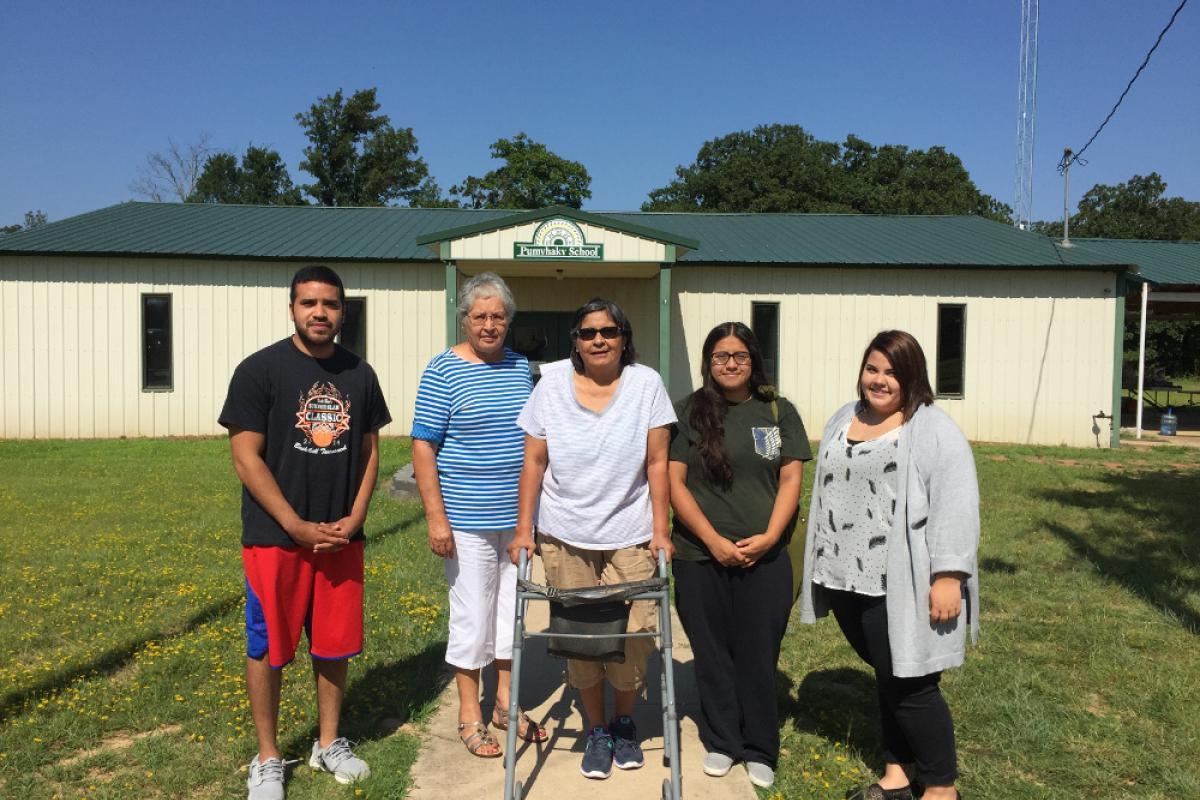
Documenting endangered languages with the help of Native students - an award to the College of William and Mary in 2015 supported students and apprentices at Bacone College, Oklahoma, to record Muscogee Creek speakers.
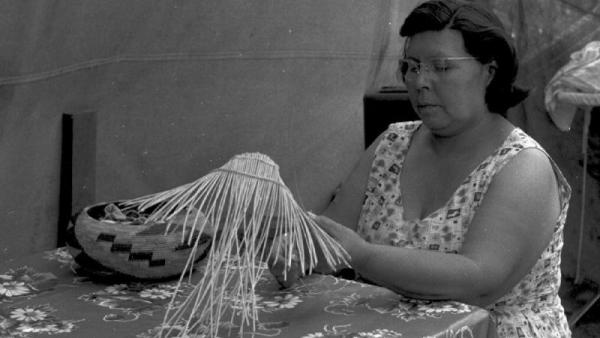
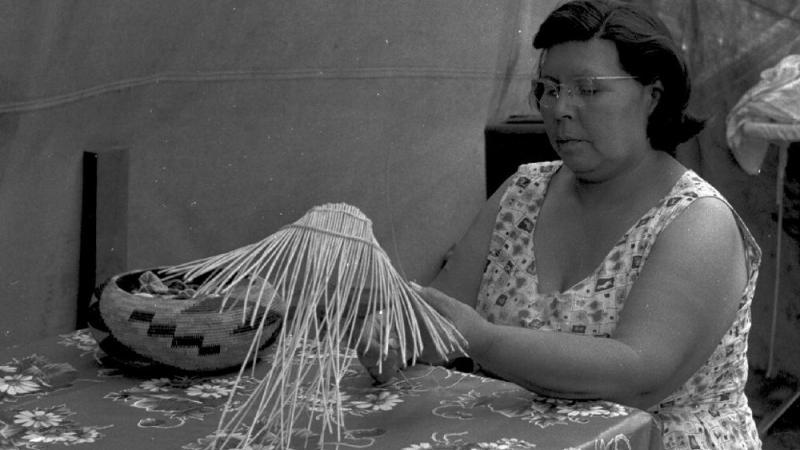
The California Language Archive (CLA) is a digital database that features audio recordings and digital images that document fifty languages indigenous to California and another eighty from nearby regions.
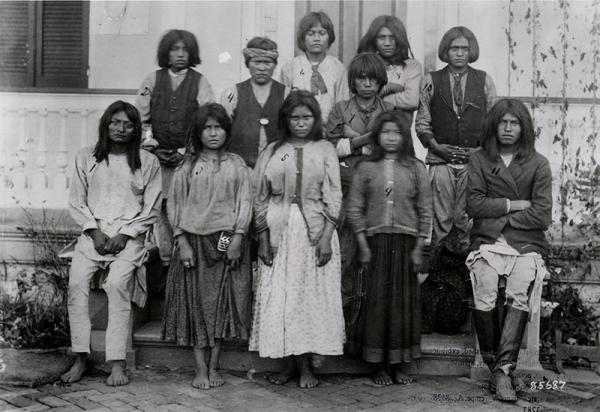
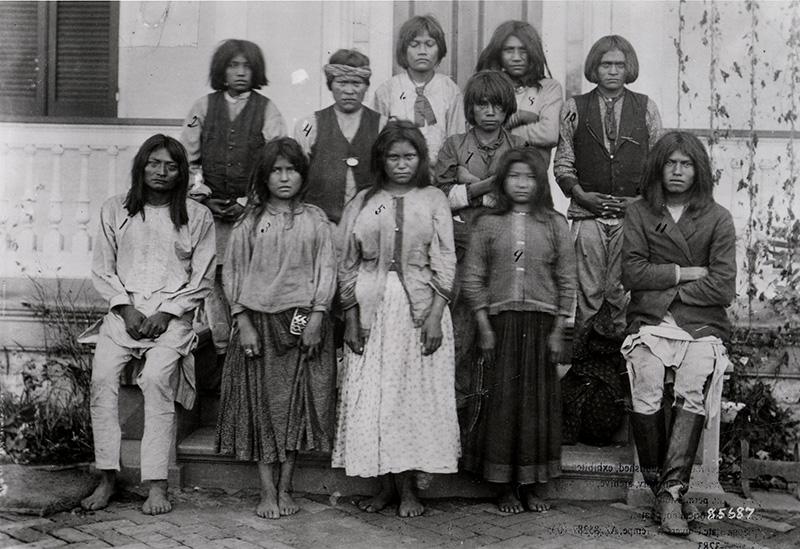
“Away From Home: American Indian Boarding School Stories”: an exhibit
The “Away From Home” exhibit, a travelling program originally featured at the Heard Museum, showcases Native stories of living and learning in the boarding school system. The exhibition will continue to travel through March 2025. Exhibition travel schedule

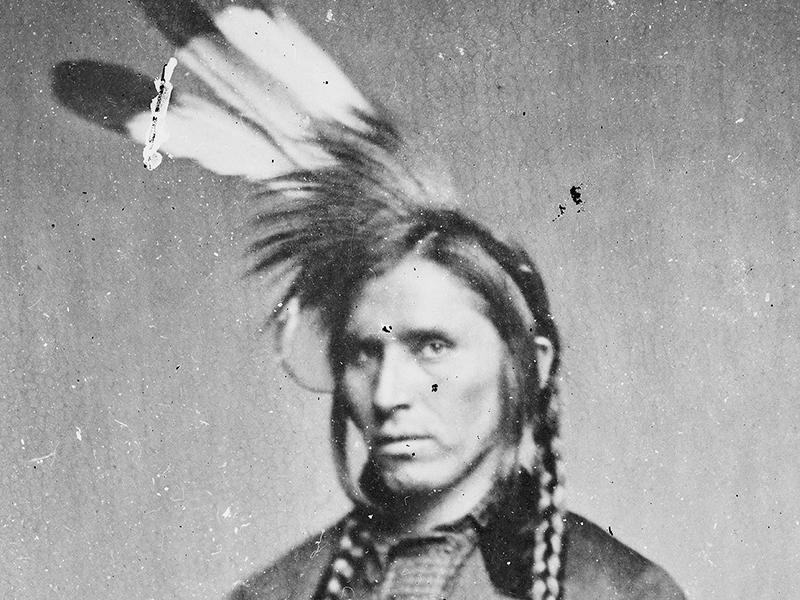
Preserving Ojibwe
The founding of the American Indian Movement in Minneapolis in 1968 helped ensure the preservation of Native cultures, including Ojibwe culture. Today, while the Ojibwe are a diverse group, they maintain ties to their historic culture, and the Ojibwe language, which has an immersion school on the Leech Lake Reservation and programs at Bemidji State University and two other institutions to train future generations of Ojibwe teachers.

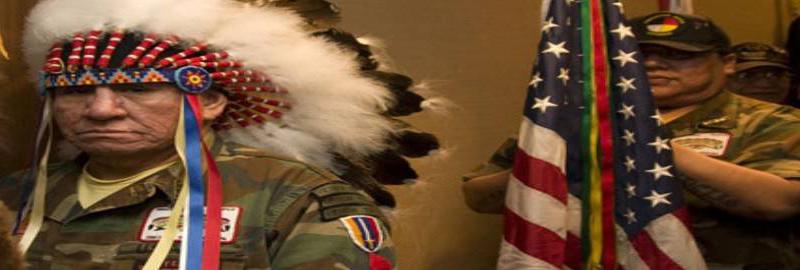
Pawnee Nation receives NEH grant
Pawnee Nation College received a $35,000 Humanities Connections planning grant entitled “Enhancing Tribal Sovereignty through Humanities-Science Connections.” The grant supported development of a curriculum for a natural sciences course that relates to the regional Indian languages, history, and culture.

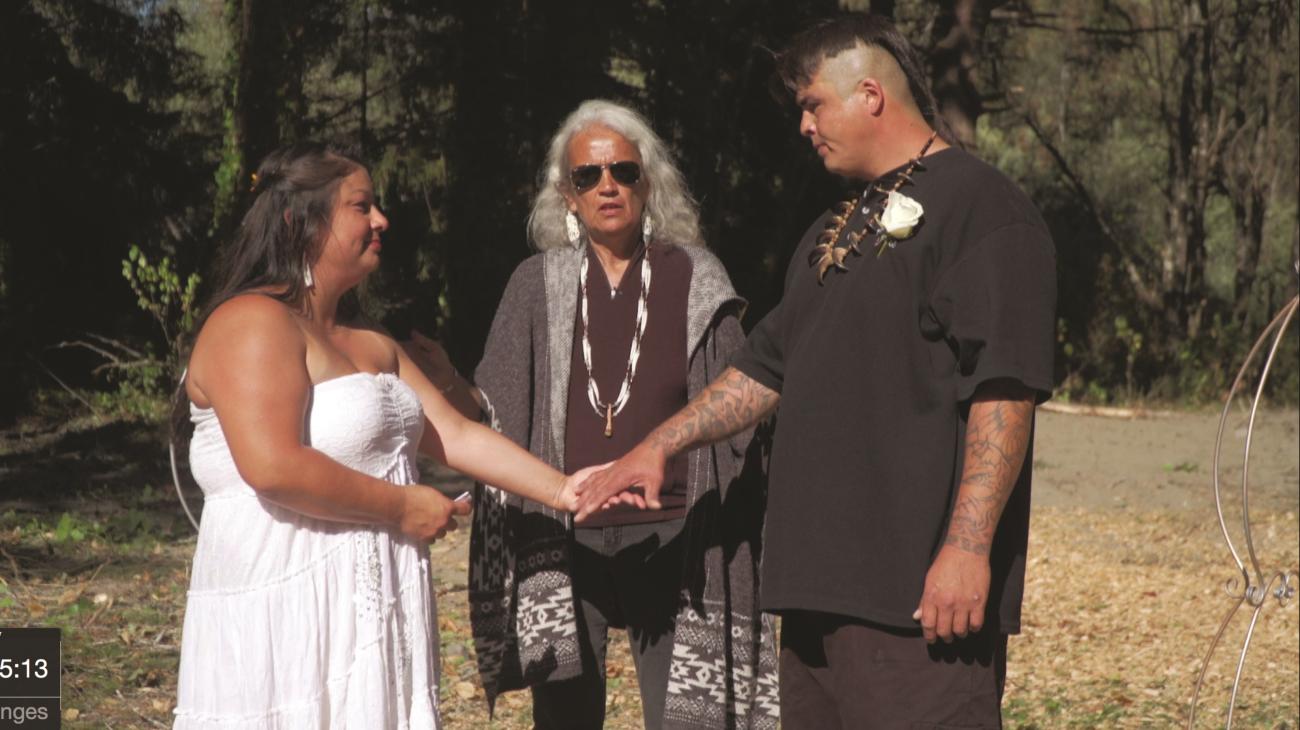
A film about restorative justice in Native American courts
Filmed over four years, Tribal Justice travels the spine of California, bridging the thousand miles between multiple tribal courts. The documentary narrates the integration of court and community and was produced by award-winning filmmaker Anne Makepeace.
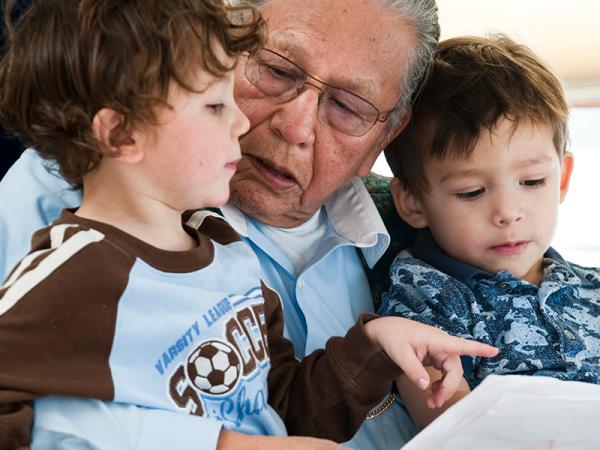

Reviving Ho-Chunk
The Ho-Chunk Language Apprentice Program, an NEH-funded project where tribal elders teach the language to younger members of the community, was featured on Wisconsin public radio’s program “Wisconsin Life.” Currently, the Ho-Chunk language has about fifty native speakers remaining.
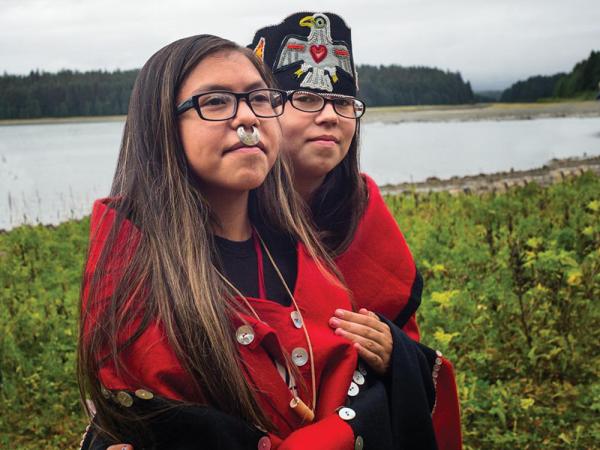
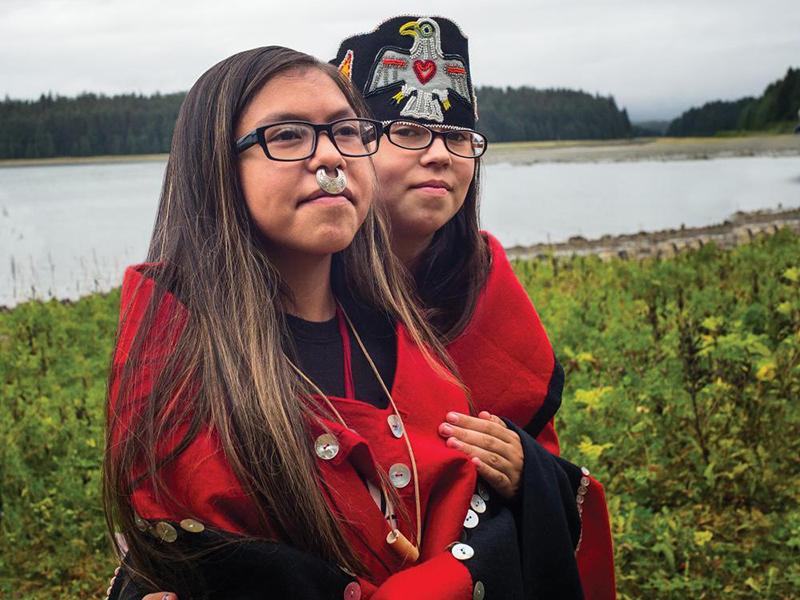
Native Alaskan culture - recounts travel to Alaska by past NEH Chairman, Jon Parrish Peede, in August 2019.


U.S. Treaties with Native Americans: an exhibit - discusses a traveling exhibition, “Why Treaties Matter: Self-Government in the Dakota and Ojibwe Nations,” developed by the Minnesota Humanities Center, the Minnesota Indian Affairs Council, and the National Museum of the American Indian examining land treaties between Minnesota tribes and the United States government between 1805 and 1867.